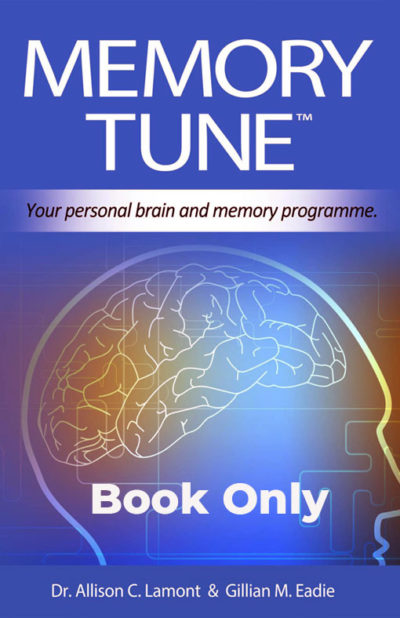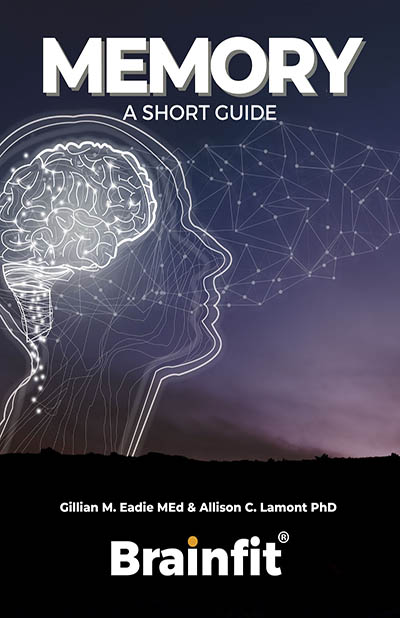I felt like an idiot sitting in the restaurant on my own. Time ticked by and I tried not to look at my mobile for the zillionth time to see how long I’d already been there, looking like sad, middle-aged woman who’d been stood up. I wanted to stand up and explain to the restaurant that I was waiting for a friend I’d bumped into last week, OK?
After 45 minutes I couldn’t stand it any longer and I sent her a text. Next minute the cossack tune blared from my mobile, and it was her. She’d forgotten all about meeting me. She’s sorry, can’t think what happened, how could she forget, so on and so on ….
That’s a baby boomer in action.
To be honest, I’ve forgotten some things, too, of late. And my memory specialist sister, Dr. Allison Lamont, tells me that there’s a heap of reasons why it might be happening, not all of them good news!
Memory loss has many names.
Forgetfulness, brain overload, amnesia, impaired memory, loss of memory, mild cognitive impairment – basically they all refer to any forgetting that is out of the ordinary.
Boomers (and often younger people) worry about memory lapses because it’s not fun to miss appointments, forget birthdays or medication. And our tech-mad world continues to bombard us with instantaneous demands so the cognitive reserve we have is soon exhausted.
Relaxation, taking control of workload, balanced food and exercise are your main weapons against brain overload.
For boomers, the main cause of memory loss is getting older. Sometimes it takes longer for our neurons to fire the way they used to. But we can all push back against forgetting with training so that’s a comfort for me and my friend. Neuroscience tells us that healthy brain cells continue to grow until the end of life as long as they have something to do.
Actively challenging and training your perfectly normal brain will overcome memory loss and, in Dr Lamont & Gillian Eadie’s new book, 7-Day Brain Boost Plan , you will find out how easy it is to remember as well as you did in your youth – maybe even better.
Occasional forgetfulness is something we all experience and if everything else checks out, then knowing that remembering is an ACTIVE process and not an automatic one, will help restore your confidence.
When memory diseases are involved, though, it’s more serious.
If you are worried that your memory loss is more than just forgetting a name or two or standing me up for lunch then it may be time to visit your doctor and/or a memory specialist. (There’s a long list of possible causes of memory loss and the most common of them are listed at the end of this article).
What will the doctor do?
You’ll be asked all kinds of questions to help you and your specialist understand what kind of memory loss it is.
- Can you remember recent events (is there impaired short-term memory)
- Can you remember events from further in the past (that’s about your long-term memory)?
- Have you just forgotten what happened before or after a specific experience (amnesia)?
- Do you make up stuff to cover gaps in memory?
- Do your moods affect your concentration?
- Has the memory loss has been getting worse over years, weeks or months?
- Is the memory loss there all the time or only now and then?
- Have you had a head injury in the recent past? surgery needing anaesthetic? seizures or an emotionally traumatic event?
You probably know that alcohol and illegal/illicit drugs are bad news for memory, so you’d better be honest with the doctor about that, too.
Other symptoms might have something to do with your memory loss so knowing if you have been confused or disoriented, whether you can eat, dress, and generally look after yourself will be on the check list of questions. Of course, they’ll do all the normal things you would expect, like blood tests looking for low vitamin B12 or thyroid disease, CT scan or MRI of the head, cognitive or psychometric tests, an EEG or even a lumbar puncture.
So, serious memory loss shouldn’t be taken lightly, particularly if you have other worrying symptoms.
Common Causes of More Serious Memory Loss
Alcoholism
Alzheimer’s disease
Brain damage due to disease or injury
Brain growths (caused by tumors or infection)
Brain infections such as Lyme disease or syphilis
Depression or emotional trauma
Drugs such as barbiturates or benzodiazepines
Encephalitis of any type (herpes, West Nile, Eastern Equine)
General anesthetics such as halothane, isoflurane, and fentanyl
Head trauma or injury
Hysteria, often accompanied by confusion
Illness that results in the loss of nerve cells
Nutritional problems (vitamin deficiencies such as low vitamin B12)
Seizures
Stroke
Temporal lobe brain surgery
For further information, go to Memory Questions: True or False and Avoid or Delay Dementia Later in Life and Improving your memory.





